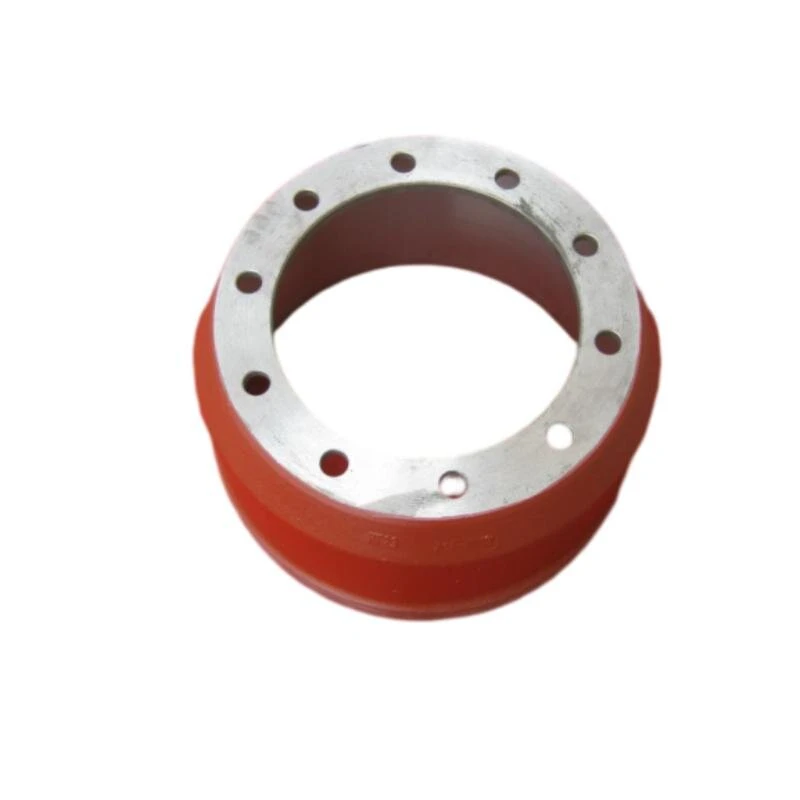Dec . 05, 2024 00:02 Back to list
clean brake drums
The Importance of Clean Brake Drums Ensuring Vehicle Safety and Performance
When it comes to vehicle maintenance, many drivers focus on engine performance, tire condition, and fuel efficiency. However, an often-overlooked aspect of car maintenance is the cleaning and maintenance of brake drums. Brake drums are essential components of a vehicle's braking system, particularly in drum brake setups, which utilize the friction between brake shoes and the inner surface of the drum to slow down or stop the vehicle. Ensuring that these brake drums are clean can significantly impact safety, performance, and the longevity of the braking system.
Understanding Brake Drums
Brake drums are typically made of cast iron and are part of the drum brake assembly. Their primary function is to create friction with the brake shoes when the driver presses the brake pedal. This friction is what allows the vehicle to slow down or stop effectively. Over time, brake drums can accumulate dirt, dust, and grime, which can hinder this critical process.
Why Clean Brake Drums Matter
1. Safety The foremost reason to clean brake drums is safety. Dirt and debris can prevent the brake shoes from making proper contact with the drums. This can lead to reduced braking efficiency, longer stopping distances, and, in extreme cases, brake failure. Maintaining clean brake drums ensures that your vehicle can stop on a dime, which is crucial in emergencies.
2. Performance Clean brake drums contribute to smoother braking performance. When dirt and dust build up, they can cause uneven wear on the brake shoes, leading to premature replacement and inconsistent braking. A vehicle with clean brake drums will have a more responsive braking system, which enhances overall driving comfort and performance.
3. Longevity of Components Regularly cleaning your brake drums can extend the life of the brake shoes and other related components. When brake drums are clean, there is less chance of corrosion and wear, which can save you money in the long run by reducing the frequency of repairs and replacements.
4. Prevention of Brake Fade Brake fade occurs when the brakes overheat and lose effectiveness. A buildup of dust and debris can exacerbate this problem by restricting airflow and causing the brakes to heat up more quickly. By keeping brake drums clean, you help to ensure that they dissipate heat effectively, reducing the risk of brake fade during heavy usage, such as in stop-and-go traffic or on steep descents.
5. Compliance with Regulations In some regions, there are legal requirements regarding vehicle maintenance, including the braking system. Keeping brake drums clean can help ensure compliance with these regulations, helping you avoid potential fines and ensuring that your vehicle remains roadworthy.
clean brake drums

How to Clean Brake Drums
Cleaning brake drums is a task that can often be executed at home, especially for those with basic mechanical skills. Here’s a simple process to follow
1. Safety First Always ensure the vehicle is parked on a flat surface, and engage the parking brake. Wear safety goggles and gloves to protect yourself.
2. Remove the Wheel Loosen the lug nuts and jack up the vehicle. Once it's securely on jack stands, remove the wheel to access the brake drum.
3. Examine the Brake Components Before cleaning, inspect the brake shoes and hardware for wear and tear. If anything appears damaged, consider replacing it.
4. Clean the Brake Drum Use a brake cleaner spray to remove dust and grime, following the product instructions. A wire brush can also help remove stubborn debris.
5. Reassemble Once everything is clean, reassemble the brake components and wheel in reverse order.
6. Test Drive After maintenance, take the vehicle for a short test drive to ensure the brakes are functioning correctly.
Conclusion
In conclusion, maintaining clean brake drums is a vital aspect of vehicle safety and performance. Regular cleaning and inspection can prevent serious issues, enhance braking efficiency, and prolong the lifespan of your vehicle’s braking system. As a responsible vehicle owner, adding brake drum maintenance to your routine can ensure that you and your passengers remain safe on the road, while also contributing to the overall health of your vehicle.
-
ROR Web Development: Build Fast, Scalable, Secure Apps
NewsAug.17,2025
-
Scania Brake Drums: OEM Quality for Optimal Safety & Durability
NewsAug.16,2025
-
R.V.I: Advanced Remote Visual Inspection for Precision
NewsAug.15,2025
-
Discover HYUNDA: Innovative Vehicles, Equipment & Solutions
NewsAug.14,2025
-
R.V.I: Unlock Advanced Insights & Real-time Performance
NewsAug.13,2025
-
Kamaz Brake Drum: Durable & Reliable for Heavy Duty Trucks
NewsAug.12,2025
